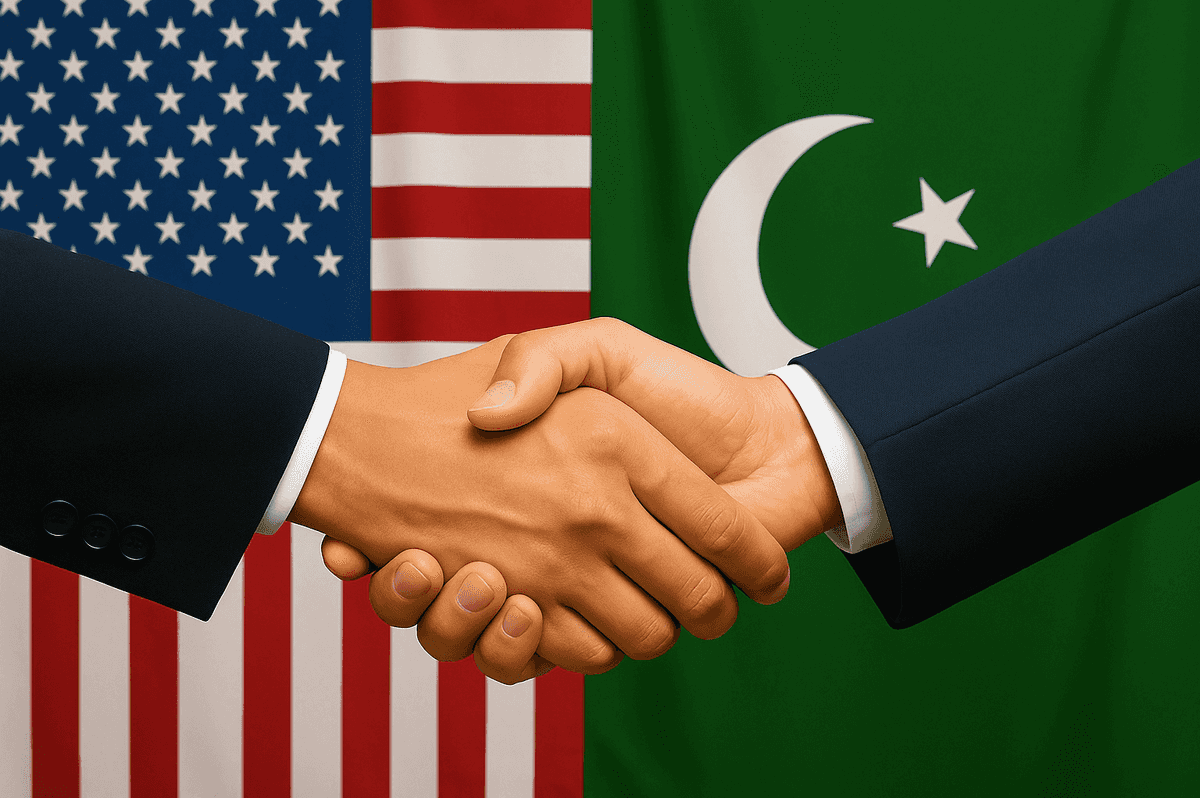Geopolitics in focus as US, Pakistan resume cabinet-level talks after nearly a decade
Though no official agenda is out, sources say the talks will likely cover regional security, counterterrorism, trade, critical minerals, and flashpoints like Kashmir

Asma Kundi
Producer, Islamabad
Asma Kundi is a multimedia broadcast journalist with an experience of almost 15 years. Served national and international media industry as reporter, producer and news editor.

Dar is expected to raise Islamabad’s concerns over the treaty’s breakdown during his Washington visit, sources say.
Nukta
For the first time since 2016, the United States and Pakistan are set to hold cabinet-level talks, with Deputy Prime Minister and Foreign Minister Ishaq Dar scheduled to meet U.S. Secretary of State Marco Rubio in Washington during his visit from July 21 to 28.
The meeting marks a significant diplomatic milestone, taking place against the backdrop of renewed India-Pakistan tensions over Kashmir, cross-border military confrontations, and India's suspension of a key dispute mechanism under the Indus Waters Treaty.
While no official agenda has been released, sources said the dialogue will likely cover a broad range of issues including regional security, counterterrorism, trade, critical minerals and flashpoints like Kashmir.
US State Department signals openness on sensitive issues
During a State Department briefing earlier this week, spokesperson Tammy Bruce confirmed the upcoming bilateral meeting but declined to offer specific agenda details.
When pressed by a journalist on whether the U.S. would revisit President Donald Trump’s mediation offer on Kashmir or address India’s alleged treaty violations, Bruce responded only: “Pakistan will be here for a bilateral, and I’ll be participating in that. We have a lot of good news.”
Though non-committal, the comment followed a direct question on Kashmir and water disputes, suggesting the door remains open for these sensitive issues to be addressed behind closed doors.
Kashmir reemerges as a flashpoint
The timing of the talks is significant. On April 17, an attack in Pahalgam, located in Indian-administered Kashmir, left 26 people dead. India blamed Pakistan-based militants, while Islamabad strongly denied the allegations and called for an independent international investigation.
Tensions spiked further on May 7 with cross-border artillery fire and limited airstrikes, prompting Trump to offer mediation. “I told them -- India and Pakistan -- they’ve had this rivalry for decades. I said, I can solve anything. I’ll be your arbitrator,” Trump said, framing Kashmir as a global security risk.
While Pakistan welcomed the overture, India dismissed it outright, maintaining that Kashmir is a bilateral matter.
Water disputes add to diplomatic strain
India’s suspension of its participation in neutral arbitration under the Indus Waters Treaty has added another layer of complexity to the regional crisis. Dar is expected to raise Islamabad’s concerns over the treaty’s breakdown during his Washington visit, according to sources familiar with the preparatory discussions.
Sardar Masood Khan, Pakistan’s former ambassador to the U.S., told Nukta that the dialogue is expected to be “wide-ranging,” covering strategic, political, and economic issues. He noted that the talks come at a pivotal moment, following a meeting last month between President Trump and Pakistan’s military chief, Field Marshal Asim Munir.
“These talks will provide an opportunity to recalibrate our relations for strength and resilience,” Khan said. “Regional security, the ongoing threat of terrorism, the aftermath of the India-Pakistan war in May, and nuclear stability are likely to feature prominently. Our trade and economic ties also need urgent upgrading.”
Reading Washington’s mood on India’s post-war posture
Khan also pointed out that the meetings may help Pakistan gauge Washington’s private assessment of India’s recent actions -- particularly New Delhi’s refusal to acknowledge Trump’s role in brokering the May ceasefire.
“India has been sulking over the renewed warmth in Pak-U.S. relations,” he said, adding that India’s parallel outreach to China signals to Washington that it has other options.
“I’m sure Washington has a lot to say about this -- though whether they’ll share that with us now is another matter,” Khan added.
On Kashmir, he expressed hope that the issue would be formally raised. “After all, President Trump voluntarily offered to help resolve the Kashmir dispute after the May conflict -- and this initiative was supported by the State Department,” he said.
“India may be walking away from dialogue, but Washington still holds influence in Delhi. It might be able to encourage a more amenable stance on a diplomatic resolution. The chances are slim, but Pakistan must keep pushing for a third-party or internationally mediated solution, because Kashmir’s unresolved status threatens not just South Asia, but global security.”
Former officials urge focus on regional security, trade
Speaking separately to Nukta, former Foreign Secretary Salman Bashir called U.S.–Pakistan engagements “always important and useful” for recalibrating bilateral ties and reviewing regional developments.
He identified tariffs as a critical issue needing resolution, and said India’s “obduracy and threatening posture” were likely to surface during the talks. Bashir also flagged counterterrorism as a probable area of focus, while expressing skepticism over the international community’s influence on New Delhi.
“India appears immune from global pressure,” he said, adding that while progress may be slow, dialogue remains the only path forward in an increasingly volatile region.







Comments
See what people are discussing